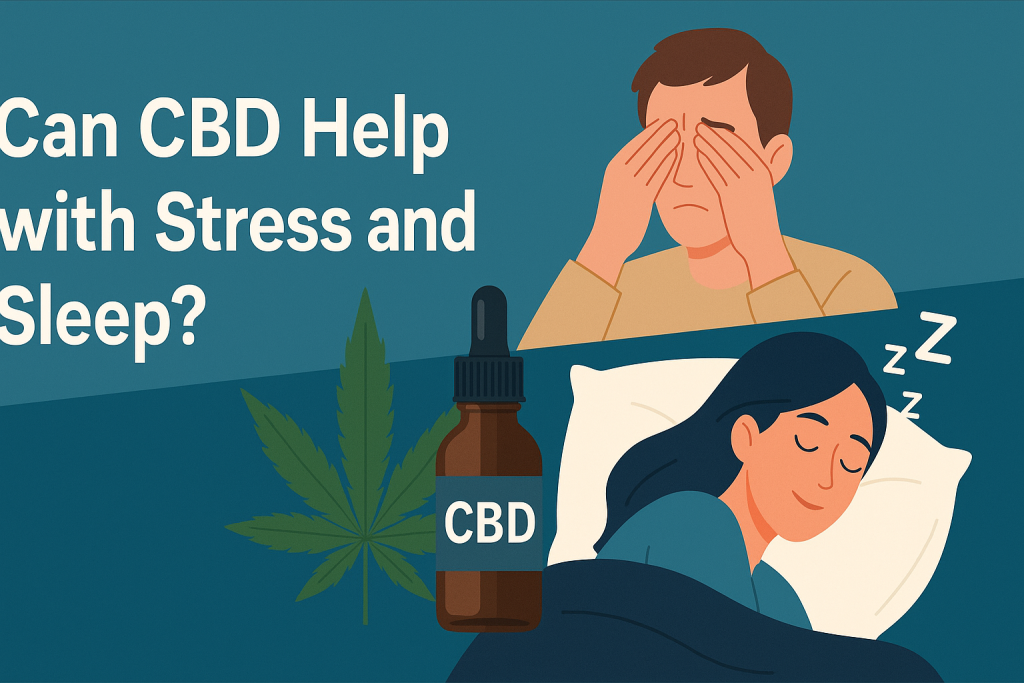CBD
How CBD May Help with Stress
CBD interacts with the body through the endocannabinoid system (ECS)—a complex network of receptors and neurotransmitters responsible for maintaining balance in various bodily functions, such as mood, sleep, appetite, and immune response.
Here’s how CBD may help reduce stress:
1. Regulating Cortisol Levels
Cortisol, often referred to as the “stress hormone,” plays a major role in how we respond to stress. High cortisol levels can lead to anxiety and restlessness. Research suggests that CBD may help regulate cortisol secretion, promoting a sense of calm and relaxation.
2. Influencing Serotonin Receptors
CBD doesn’t directly increase serotonin levels, but it can influence how your brain’s chemical receptors respond to serotonin—a key neurotransmitter that contributes to well-being and happiness. This action is similar to the way some antidepressant medications work, offering potential for mood regulation and anxiety relief.
3. Reducing Symptoms of Anxiety
Several studies have indicated that CBD may reduce anxiety, particularly in social and performance-related situations. Lower anxiety often leads to a calmer mental state, which is conducive to better sleep.
How CBD May Improve Sleep Quality
Sleep disorders such as insomnia or restless sleep can stem from many causes—stress, anxiety, chronic pain, or neurological issues. CBD’s effects on sleep may be both direct and indirect, depending on the underlying cause.
1. Promoting Relaxation
CBD has calming effects on the central nervous system. By easing mental stress and relaxing the body, it may help you fall asleep faster and stay asleep longer.
2. Pain and Inflammation Relief
For those whose sleep is disturbed by chronic pain or inflammation, CBD’s anti-inflammatory properties may ease discomfort and enable more restful sleep.
3. Improving Sleep Cycles
Emerging research suggests that CBD may affect REM sleep (the deep sleep stage), promoting a more balanced sleep cycle. This means users may experience fewer interruptions during the night and wake up feeling more refreshed.
How to Use CBD for Stress and Sleep
There are many ways to incorporate CBD into your routine, including:
- CBD oil/tinctures: Fast-acting when taken sublingually (under the tongue)
- Capsules or gummies: Easy to dose and ideal for consistent use
- Vapes: Quick relief but not recommended for everyone
- Topicals: Good for localized pain but less effective for sleep
Dosage varies depending on individual needs, body weight, and metabolism. It’s advisable to start with a low dose (e.g., 10–20 mg) and gradually increase it until desired effects are achieved.
Always consult a healthcare provider before starting CBD, especially if you are on medication or have a medical condition.
Safety and Side Effects
CBD is generally well-tolerated, with few side effects. However, some users may experience:
- Dry mouth
- Drowsiness
- Digestive issues
- Changes in appetite or weight
These effects are typically mild and temporary. Ensuring you purchase high-quality, third-party tested CBD products can reduce the risk of adverse reactions.
Conclusion
CBD offers a promising, natural approach to managing stress and improving sleep. By interacting with the body’s endocannabinoid and serotonin systems, it helps promote a state of calm, reduces anxiety, and supports healthy sleep patterns. While more clinical research is needed, many users report noticeable improvements in their stress levels and sleep quality with regular CBD use.
If you’re struggling with stress or sleepless nights, CBD may be a helpful addition to your wellness routine—just be sure to choose quality products and consult with a healthcare professional before beginning.

